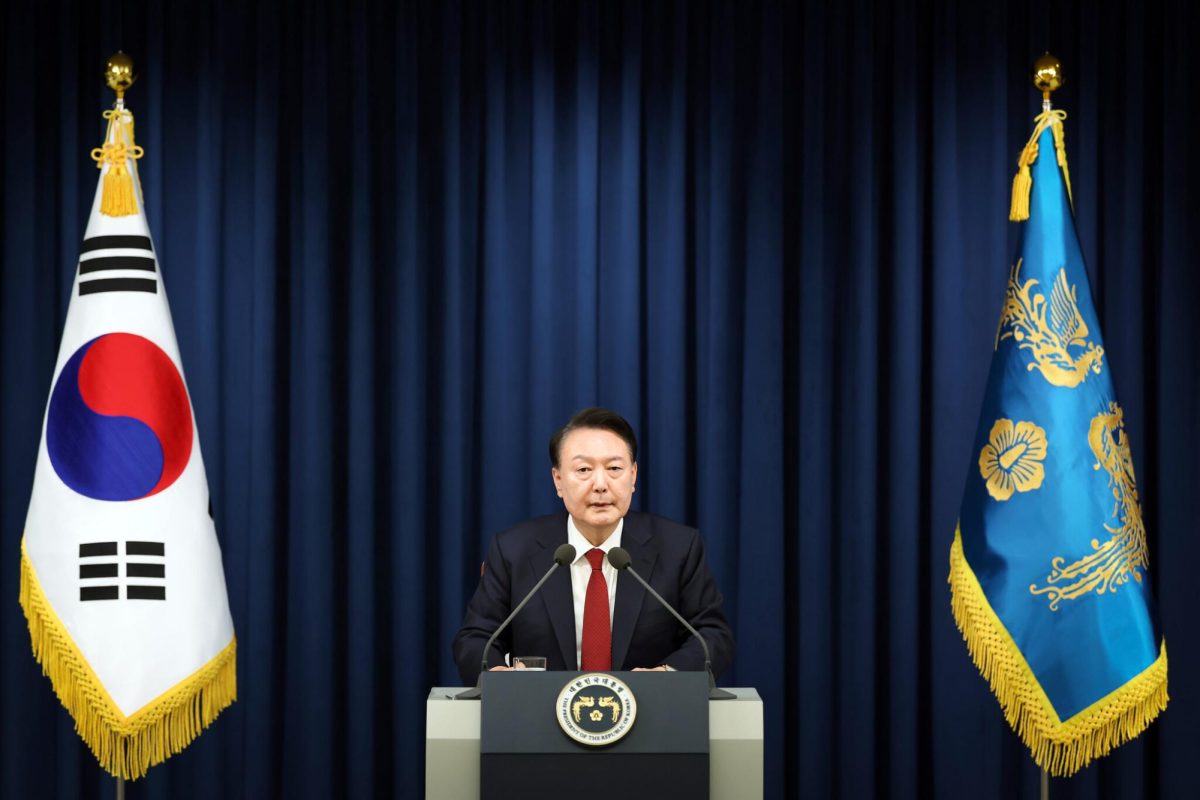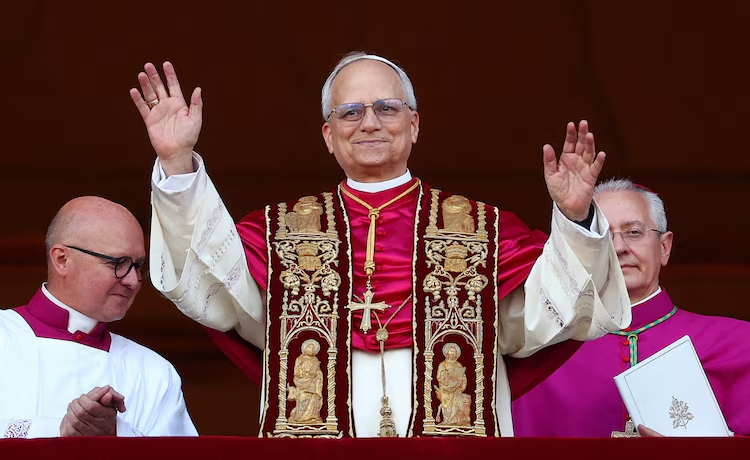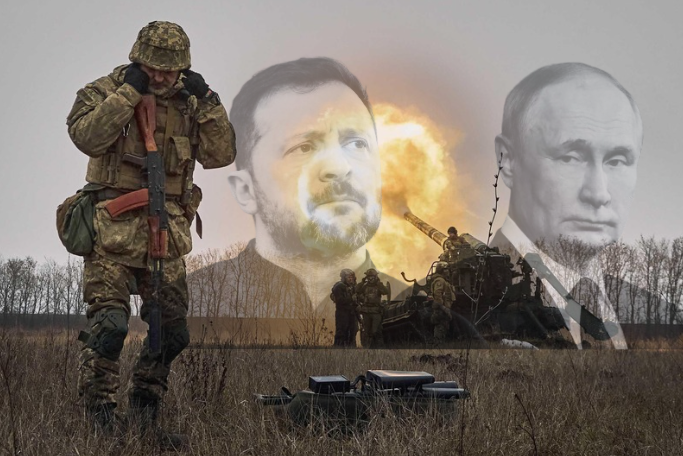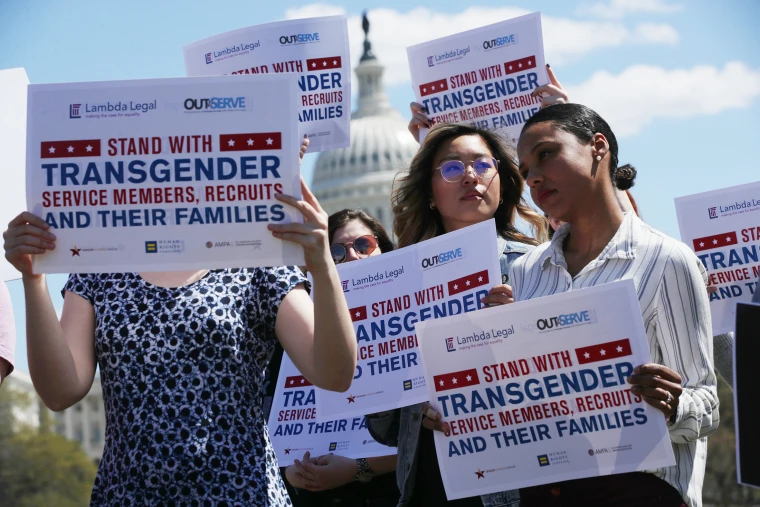On Tuesday, December 3, 2024, at 10:27 PM, Korean Standard Time, the President of South Korea, Yoon Suk Yeol suddenly and unexpectedly declared Martial Law. His reason? He vowed to eliminate anti-State forces embedded in South Korean society, and most frighteningly, the government. The catch, however, is his declaration of Martial Law would censor the press, and temporarily ban the right to assemble (protest), among other things. Which sounds suspiciously undemocratic and more authoritarian and tyrannical.
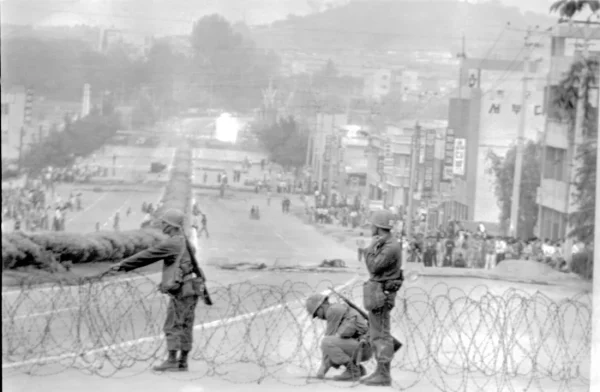
South Korea has not always been the most Democratic place in the world. Martial law is the temporary suspension of civilian rule in a country in favor of temporary military authority. Memories of tyrannical rulers and unjust declarations of martial law have been made in the past previously.
The BBC outlines this with an interview with 87-year-old, Koh Jae-hak, who “still vividly remembers when he saw soldiers gunning down a group of young women in cold blood.” during protests in April of 1960. “Students had launched protests calling for the resignation of the dictatorial president Syngman Rhee. Mr Koh was working in a government building when he looked out of the window and saw protesters clashing with police.” (BBC).
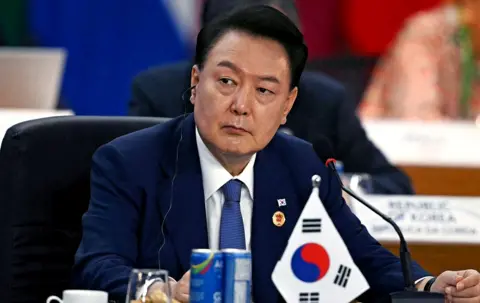
The last time martial law was enacted in South Korea was in May 1980, when the President of South Korea declared martial law, where once again protests were put down with brute force. A memory that disgusts South Koreans, provoking them into never wanting to go back.
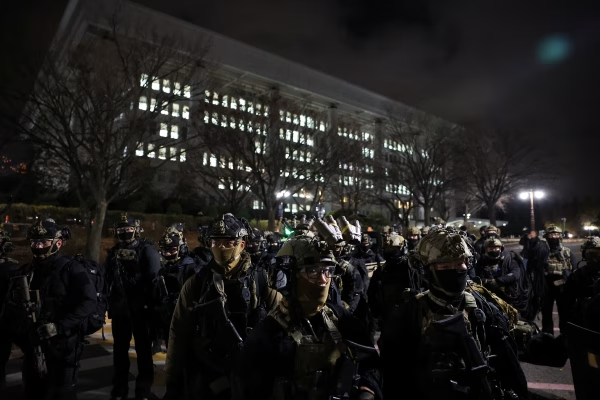
South Korea is widely viewed as a beacon of democracy in East Asia, which couldn’t be any more far from the truth. South Korea saw 16 bouts of martial law during its first four decades ruled largely by dictators (BBC). Hence, on December 3, 2024, when President Yoon Suk Yeol unexpectedly declared martial law in the middle of the night, South Koreans did not hesitate to act.
“I declare martial law to protect the free republic of Korea from the threat of North Korean communist forces and to eradicate the despicable North Korean anti-state forces that are plundering the freedom and happiness of our people.” stated the highly disgraced South Korean President, Yoon Suk Yeol on Tuesday, December 3, 2024, at 10:27 PM, KST. Many opponents, and now members of his own party, agree that this declaration was not due to an unspecified threat, but to preserve his own power following a multitude of scandals involving him and his ever-declining popularity, which is now being exacerbated by this unjust declaration. (The Project).
Shortly after the declaration of martial law, helicopters landed on the National Assembly Parliament building as South Korean soldiers stormed in through doors and windows. Simultaneously, thousands of South Korean protestors took to the streets of Seoul clashing with both soldiers and police, chanting “Impeach Yoon Suk Yeol!”
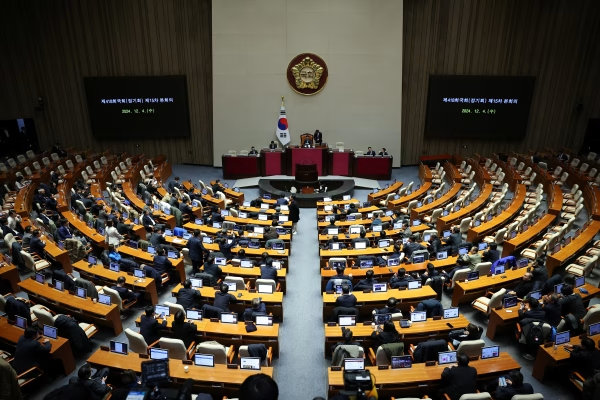
Mere hours after the declaration, members of Parliament fought to get inside the National Assembly Building. Of the 190 South Korean members of the National Assembly Parliament, all 190, including members of Yoon’s own party, unanimously voted to pass a motion to lift martial law, invalidating the declaration at 1:02 AM, KST. At 4:30, KST, on December 4, 2024, martial law was officially lifted by Yoon and his cabinet, merely six hours after the initial declaration.
Now, you may ask, how likely is it that President Yoon Suk Yeol will be impeached? The better question would be, when will we see President Yoon Suk Yeol resign or be impeached? The National Assembly has since stated that they will charge President Yoon Suk Yeol with insurrection and impeachment and South Korea’s largest union has declared that it will go on strike until Yoon resigns. Democratic Party Floor Leader, Park Chan-Dae, a member of Yoon’s party, stated that “He should step down and resign immediately. This is the mandate of the people.”
This comes as a shock to many all around the globe, particularly in the West. South Korea normally serves as a beacon of hope and Democracy in Asia to the West, as it and Japan are two of the few Democracies in the unstable, corrupt, and authoritarian Asian continent, especially as they normally contrast South Korea’s secluded and tyrannical neighbor to the north, the Democratic People’s Republic of Korea, or North Korea.
However, it goes to show that history is doomed to repeat itself to those who fail to learn from it. The people of South Korea have most certainly and thankfully learned from it. The sheer determination and swift and undaunted response to President Yoon Suk Yeol’s unjust declaration of martial law demonstrate the implications of the 16 previous declarations of martial law in the country, the last one happening nearly 45 years ago in May of 1980.
Photo courtesy of The New York Times, BBC, NPR, and Reuters.

